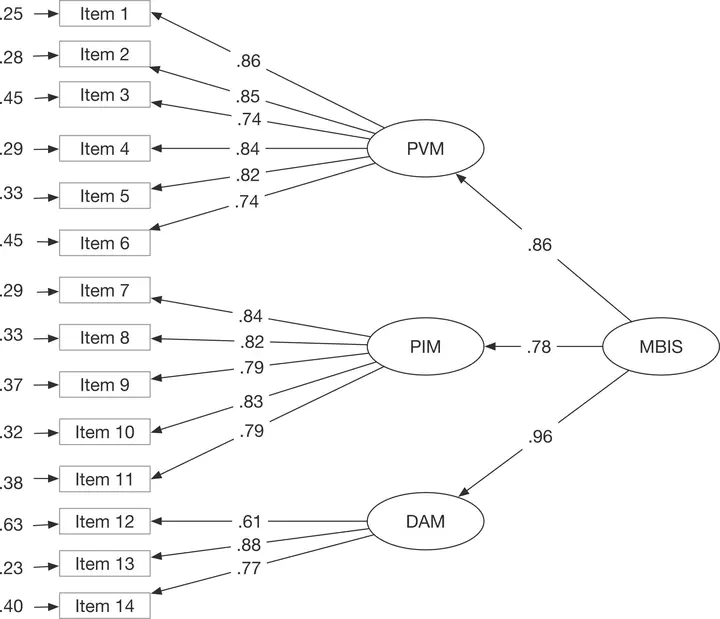The Muscularity Bias Internalization Scale: Development and initial validation in Chinese adult men
 Image credit: Unsplash
Image credit: UnsplashThe present study developed the Muscularity Bias Internalization Scale (MBIS), a measure of muscularity bias internalization, which assesses the extent to which an individual endorses muscularity-based stereotypes and engages in negative self-evaluations due to muscularity. In Study 1, a pool of candidate items was developed. By using exploratory factor analysis (EFA) on a sample of 300 Chinese adult men (Mage = 29.98 years, SD = 7.81), 14 items from the item pool were retained. The 14-item MBIS contained three factors. In Study 2, the second sample of 300 Chinese adult men (Mage = 29.50 years, SD = 7.50) was used to confirm the factor structure of the MBIS, as well as to examine its reliability and validity. Confirmatory factor analysis (CFA) further confirmed the three-factor structure of the MBIS with a good model fit. The MBIS showed high internal consistency reliability and high two-week test-retest reliability. The MBIS also showed good construct validity with measures of drive for muscularity, muscularity-oriented disordered eating, and muscle dysmorphia symptoms. The newly developed MBIS may help understand the role of muscularity bias internalization in the development and maintenance of muscularity-oriented body image and muscularity-oriented disordered eating.